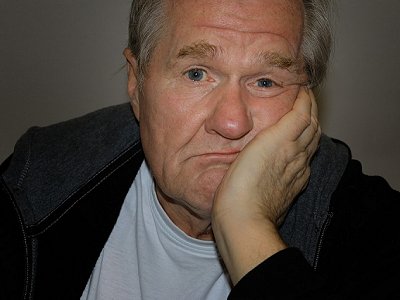
ON BEING BORED
Who is brave enough to let the boredom they feel speak to them rather than trying to suppress it? Those who do may just be the recipients of a rich spiritual encounter
In case you were wondering, April 11, 1954 was the most boring day in the last century; this valuable piece of information was discovered by a computer programmer using a specially created algorithm. On that day a general election was held in Belgium, a Turkish academic was born and an Oldham Athletic footballer died. Apart from this, that’s pretty much it. Leaving aside the considerable relevance to the Belgians of how they are governed and the joy and grief which the birth and death referred to symbolised for others that day, the very fact of identifying April 11, 1954 as the most boring day imaginable has made it one of the most talked about days in the last century, thus defeating the finding. However, it alludes to a very relevant question: just how bored are we?
Few measurements have been made of this human condition. One online survey suggests that Britons are bored for about six hours each week, which equates to more than two whole years of boredom in an average lifespan. Few people readily admit to a problem with boredom, perhaps because it is indelibly linked to childhood and therefore evidence of lingering immaturity. Adults make a virtue where they can of not having the time to be bored and they are also more adept at masking it. Ignoring its causes and effects, however, is regrettable for we may have something to learn.
Broadly speaking, there are two kinds of boredom. The first is the existence of repetitive circumstances which are lengthy, predictable and hard to escape. Those who have the health, wealth and freedom to make varied choices in life may find it difficult to understand the plight which some people find themselves in but should resist the temptation to judge others for what amounts to a lack of choice. Boredom is especially toxic when the situation seems valueless, for there seem to be no redeeming features to it.
The second kind of boredom is existential, where our very being is under assault from the mood we are infected with. This has gone under many names in history (melancholia, ennui, world-weariness) and taken different forms according to the culture and age. In the Bible, Psalms 42 and 43 (‘why are you cast down, O my soul, and why are you disquieted within me’) may be evidence of such despair among the community of believers. These Psalms are also a robust indication that those who have known the joy of God’s salvation are not immune to feelings of pointlessness, moods which all pastoral ministry should identify with if it is to be of any use to the sufferer.
Sometimes boredom is an early warning sign that the path being taken is inimical to our welfare, rather like the experience of pain which teaches us to withdraw from a fire. Yet there may be times when we should let the boredom interrogate us, rather than suppressing it. To avoid what it might be saying, we immerse ourselves in the accessible stimuli of modern life: work, music, drink, digital media and risky behaviour. Ours is an over-stimulated era where people set themselves endless personal challenges as a way of heading off nagging feelings of meaninglessness.
The psychiatrist Victor Frankl identified ‘Sunday Neurosis’ in his clinical work as the feeling of emptiness which descended on Sundays in traditional Western homes when the material routines of life were suspended, the workplace was deserted and the shops closed. We defined this as a boring day and decided to be rid of it by opening the shops and allowing people to carry on like the rest of the week. The recent commercialisation of Sunday is perhaps the most dramatic collective example of immersing ourselves in stimuli in order to avoid deeper, uncomfortable truths. Who knows how God might speak into the void we nervously seek to fill? The God of these gaps is living and active and able to use this space imaginatively to strengthen us, if we are willing. I know I do not find these moments easy to handle, even if I describe my condition as a ‘low boredom threshold’ in an astute and self-regarding defence of my nervy existence.
The most boring day in history was meant to be a one day media headline and it achieved that. Even so, I would not be surprised if, in the fullness of God’s time, he revealed that particular day to be one of profound significance for the growth of the kingdom of God. It would be consistent with his propensity to turn our expectations of what really matters upside down. We measure the things we can see: humdrum elections in small nations and the births and deaths columns of our newspapers. I’m now quite looking forward to uncovering what God was actually accomplishing that day on April 11, 1954 because if it really was that boring, he may have been seriously at work in the void those who were around at the time apparently felt.
POPULAR ARTICLES

Obama's Covert Wars
The use of drones is going to change warfare out of all recognition in the next decades.

Through A Glass Starkly
Images of traumatic incidents caught on mobile phone can be put to remarkable effect.

What Are British Values?
Is there a British identity and if so, what has shaped the values and institutions that form it?


